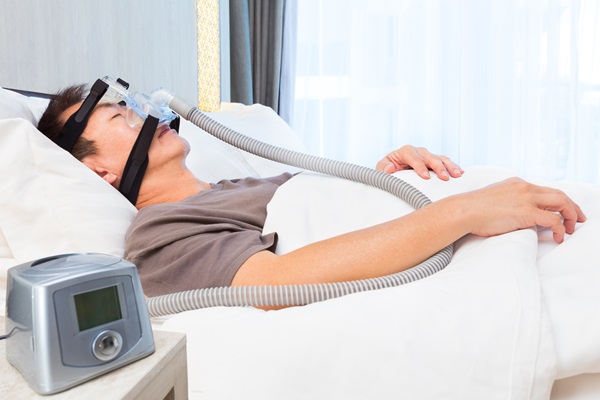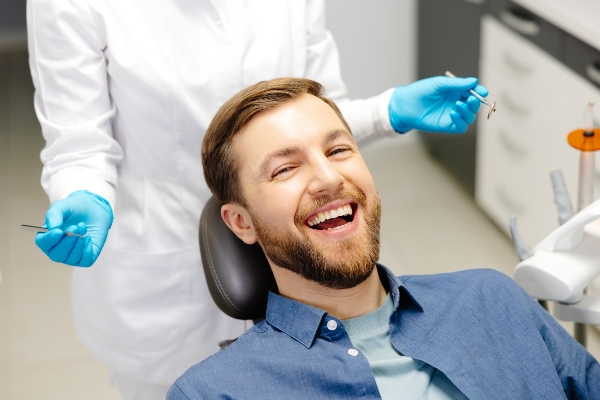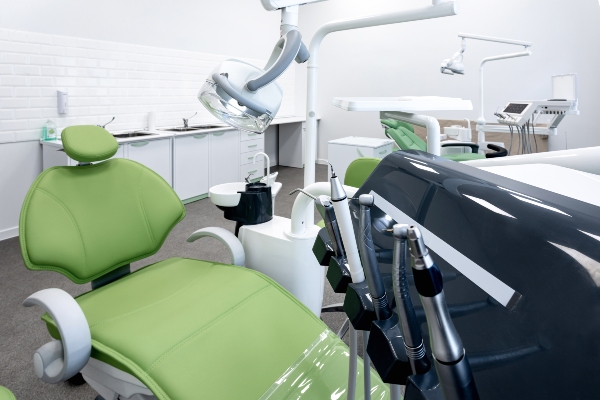Dental Appliances for Sleep Apnea

OSA, or obstructive sleep apnea, is a health issue that should receive proper treatment. Your dentist can help you manage this disorder with the proper dental appliance. The oral device will be custom-fit for your needs. Here are the dental appliances that can help with your sleep apnea.
Sleep apnea and oral appliances
This problem involves the blockage of the airways because the throat and mouth muscles relax when one sleeps. The blockage stops the person’s breathing. When this happens, the individual wakes up, gasping for air. The pauses in breathing can happen many times each night. It then results in inadequate sleep.
Sleep apnea can trigger the onset of different conditions, such as Type II diabetes and high blood pressure. The individual can even suffer from daytime sleepiness, which can be dangerous if the person drives or does risky work. The dentist can create custom-fit dental appliances to stabilize the tongue and keep the air passage open. These devices also change the jaw position to provide more room in the mouth.
TRDs or tongue-training devices
The dentist can suggest a TRD for people with moderate sleep apnea. This device can keep the tongue in place with soft silicone or plastic. It rests around the tongue. The TRD prevents the tongue from falling into the throat and obstructing the air passages.
MADs or mandibular advancement devices
These devices are for people with mild to moderate sleep apnea. The dentist will use hard plastics in creating MADs. The device will hold the jaw forward while the patient sleeps. It will be custom-fit. It covers the gumline, lower teeth, and upper teeth.
The dentist can tighten it to push the lower jaw forward. The adjustment can happen if sleep apnea still happens. The MAD will attach by means of metal springs or hinges. These attachments allow the lower jaw to move a little bit forward.
Mouthguards
The dentist will create custom-fit mouthguards for sleep apnea. The fit must be good so that the mouthguard can keep the lower jaw in a forward position. It will prevent the soft palate and tongue from falling into the back of the mouth. The mouthguard will keep these structures from blocking the air passages while sleeping. This device is an effective option for those who cannot tolerate a TRD or MAD.
Treating sleep apnea with dental appliances
Custom-fit oral devices can treat this sleep disorder if the individual is a good candidate. The sleep doctor will determine if the individual can have dental appliances for sleep apnea. People with mild to moderate apnea can use oral devices to treat this disorder. The sleep doctor will decide if the patient will need more treatment in the form of CPAP therapy.
Dental device option for sleep apnea in kids
Children can also develop this disorder. The sleep doctor may suggest a rapid maxillary expansion or RME. This dental appliance can expand the roof of the child’s mouth. The goal is to open the child’s air passages.
The dentist will place a custom-fit expander over the back teeth. This will push the upper molars out. The child must wear this sleep apnea device at all times. Doing so will adjust the arched or narrow hard palate. An RME can end the child’s sleep apnea later in life by changing the mouth anatomy at an early age.
The benefits of dental appliances for sleep apnea
A person with sleep apnea needs an effective treatment. The sleep doctor will assess the individual first. If the patient cannot tolerate CPAP therapy, a dental appliance can treat sleep apnea. Below are the benefits of oral appliances:
- Dental devices are portable. They are good for people who travel most of the time. Placing them in the carry-on bag will not be a problem.
- The appliances are easy to handle and use. Wear it and sleep. There will be no tubing or cords to worry about. Setting up a machine is not necessary either.
- They are quiet. Wearing them while sleeping will not disturb the person in the same bed.
- The devices are custom-fit. This allows the appliances to be secure in place.
Some side effects
Any treatment has its possible disadvantages. Wearing a dental appliance for sleep apnea is not an exception. The sleep doctor and dentist will explain each as part of the treatment plan. Here are a few of the common side effects:
- Soreness of the gums, jaw, and teeth is natural
- Excessive saliva or dry mouth may happen
- There will be difficulty speaking during the early days
Dental appliances for sleep apnea can help treat or manage the symptoms
It is not easy to deal with sleep apnea every night. Kids and adults can have this sleep disorder. The sleep dentist can help by providing the right form of therapy. Oral appliance treatment can help by repositioning the jaw or preventing the tongue from collapsing. Wearing these oral appliances can help you achieve better health.
Request an appointment here: https://serenitydentalspa.com or call Serenity Dental Spa at (415) 376-6196 for an appointment in our San Francisco office.
Check out what others are saying about our dental services on Yelp: Do I Have Sleep Apnea in San Francisco, CA.
Related Posts
Sleep apnea treatments can significantly improve energy, focus, and general well-being. Dentists strive to help patients experience substantial relief and improved sleep through tailored treatment solutions. From comfortable oral appliances to collaborative care plans, these dental providers take a proactive approach to helping you get better rest.Sleep apnea is a common condition that disrupts breathing…
Sleep apnea is a significant sleeping problem that may cause severe sleep disturbance. It might potentially cause other health problems if left untreated. Fortunately, a general dentistry professional can provide treatment options. Oral appliances and other breathing equipment are two therapy options for sleep apnea.Although it may seem weird to visit the dental office for…
Sleep apnea interrupts your breathing while you are asleep, which forces your brain to momentarily wake you up to restart your breathing. These interruptions can occur hundreds of times during a single night, making it impossible to get quality sleep. Sleep apnea can also have life-threatening consequences when left untreated for prolonged periods. In addition,…
Sleep apnea affects tens of millions of American adults. Without an effective treatment solution, obstructive sleep apnea can cause symptoms that affect the patient negatively at night and throughout each day. The good news is that there are effective treatment solutions for sleep apnea. In this review, we discuss the most popular options from a…


